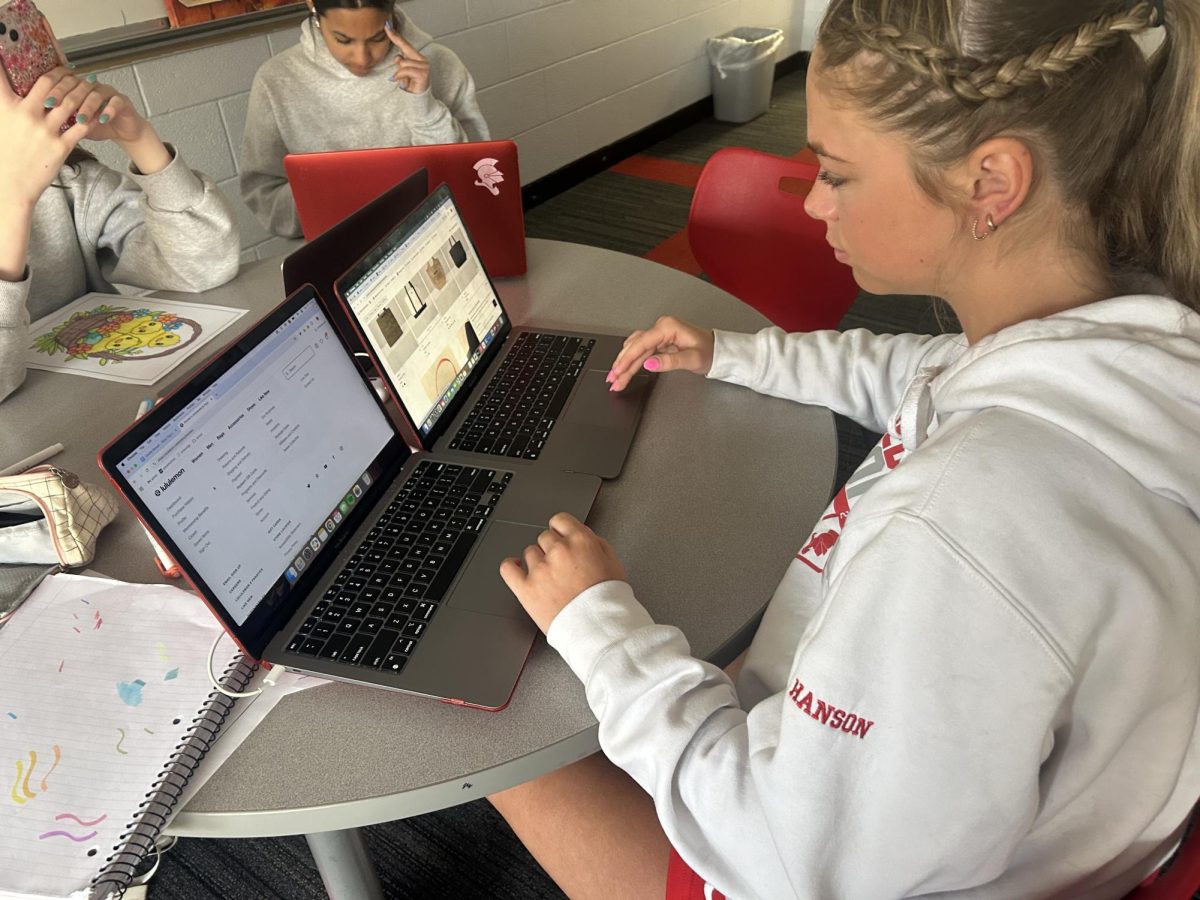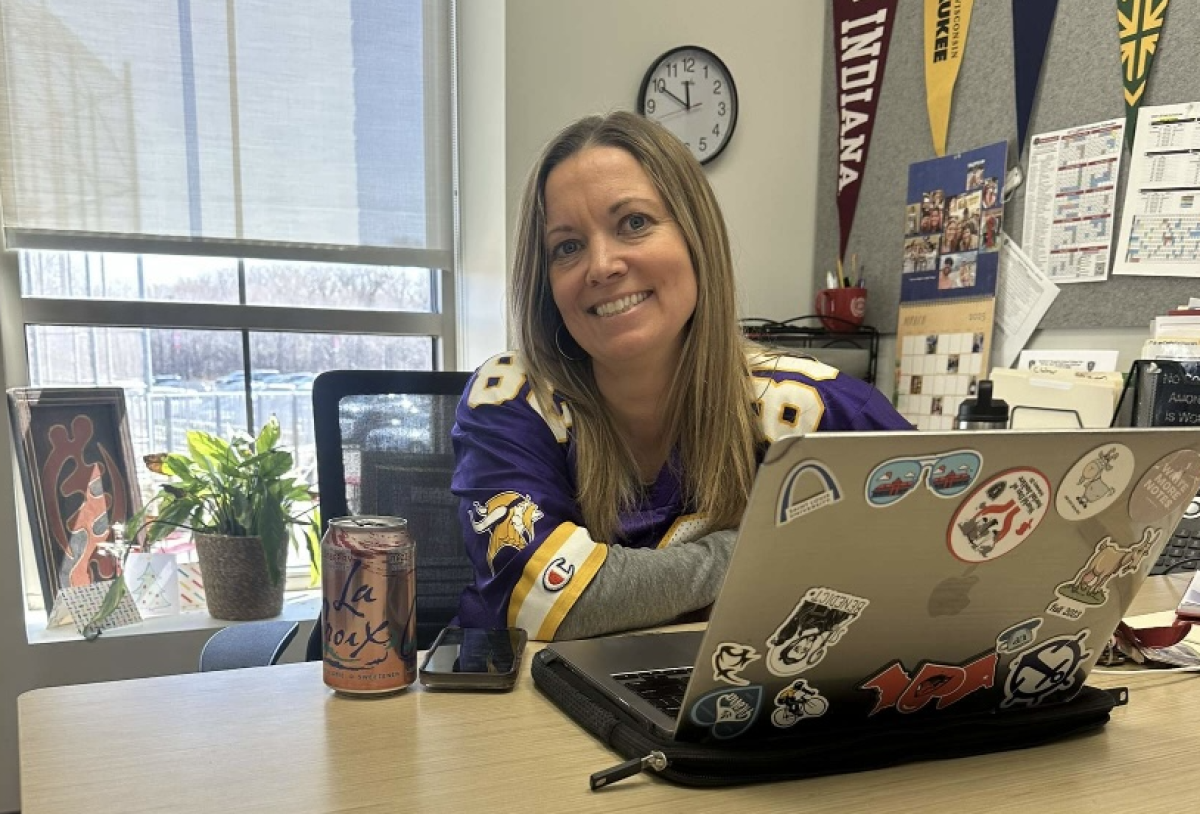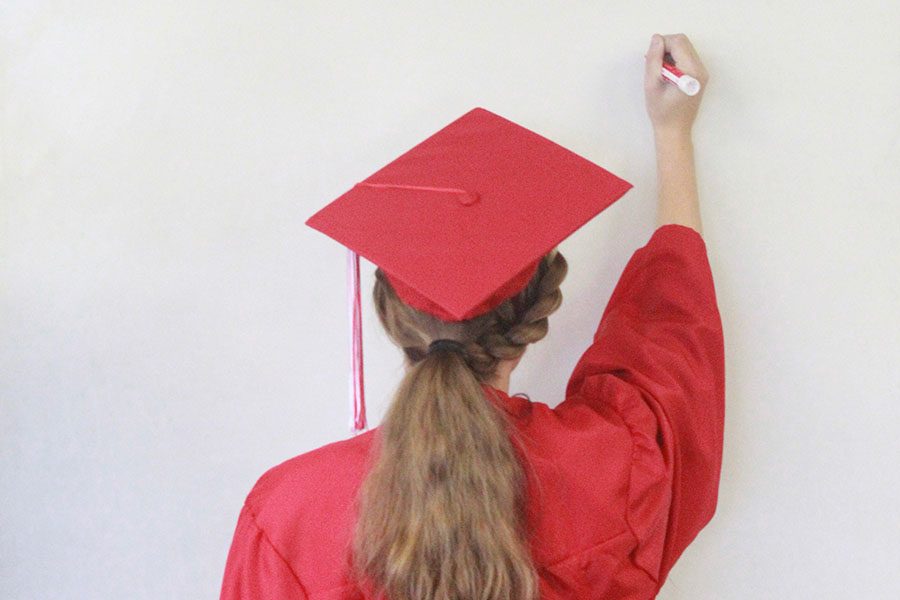Getting prepped at prep school
Benilde-St. Margaret’s primary goal as a college preparatory school is to impress upon their students the skills necessary to thrive. How well does BSM fulfill this goal?
After BSM, it’s up to students to write their own story. While some students believe that BSM challenged and prepared them for college, others see possible changes that could help out students.
It feels imminent, urgent, and confusing all at once: the search to find the right college is one of the most integral aspects of student life at Benilde-St. Margaret’s. BSM strives to introduce the possibilities of the students’ future from the get-go.
Though the coursework load is seemingly intense and voluminous, the constant exposure to postsecondary possibilities serves a purpose. “We try to meet students where they are and guide them to where they need to be in the [college] process,” said Guidance/ College Counselor Heidi Wessman.
As a current freshman at the University of Kansas, 2016 graduate Marley Rozman credits her high school experience as being instrumental in her transition to college. “BSM was definitely the building blocks to college. Without learning the basics in high school, it wouldn’t be possible to learn more complex things in college,” Rozman said.
BSM offers 15 Advanced “AP” Placement classes and nine separate honors/advanced classes. For Peter McCague, a current Pepperdine freshman and 2016 graduate, collegiate academics are made exponentially easier by the rigor of classes offered at BSM. “Most of my classes are pretty easy because I have already learned similar material at BSM. If I haven’t learned the material yet, they are easy because BSM has taught me how to study and do well academically,” McCague said.
For Brandon Banks, another 2016 graduate, the transition to his new life at Purdue University in Indiana was a smooth one. Not only was Banks prepared for distance and academics, he credits BSM for his strong values of leadership and willingness to learn. “I was supported in my multiple endeavors to assist our community… in turn, I feel that BSM not only prepared me for success in college, but has also allowed me to build upon skills such as communication, collaboration, conflict resolution, and critical observation,” Banks said.
Banks’ college experience highlights how imperative it is to be prepared for college on both a social and an academic level, as each is vital to the adjustment process. His former classmate McCague shares the same sentiment, and also sees the social aspect of college as one that’s very important. “Meeting people and making solid friends will make college ten times more enjoyable,” McCague said.
Students have and will always internalize information they receive about college differently than their peers, though. For Dalhousie University sophomore and class of 2015 graduate, Alex Setchel, the BSM environment wasn’t one she looked to in creating her new life in Halifax, Nova Scotia, Canada.
Although she considers the overall transition to life in another country as smooth, BSM wasn’t a large factor. There are some aspects of student life Setchell wishes she would’ve learned in high school. “Studying in university is a lot more complex than simply memorizing information, and I feel like I would have been better prepared if the assessments in high school hadn’t relied so much on that,” Setchell said.
Similar to McCague, 2015 graduate Parker Breza moved halfway across the country, but in the opposite direction to Tufts University in Massachusetts. Although Breza also considers his move to have been relatively smooth, he wishes that more aspects of college adaptation were introduced during the last year of high school. “In senior year, I think classes should start moving to the model that colleges do more long term projects that force you to work on time management skills,” said Breza.
The move toward more collegiate methods of teaching in a high school classroom have been noticed by more than students. In fact, Social Studies teacher Megan Kern is one who sees the transition from high school to college as a marker of personal growth. For Kern, it begins with holding upperclassmen, especially seniors, accountable for their work.
“[With juniors and seniors,] we buckle down on late work and people not doing the things they’re assigned to do. If you’re doing some kind of group work, you can’t be that weak link. With juniors and seniors, I’ll just give one warning and that’s it. Then it’s just the natural consequence of their choosing not to do their work,” Kern said.
For some, that accountability can be scary. For others, more responsibility in high school is conducive to a smooth college transition. Either way, it’s evident that one’s high school experience is instrumental in their transition to a new environment. And, if you’re able to meaningfully reflect on your high school experience, your transition to college will be much smoother. “Don’t be afraid to take advantage of the resources that BSM and your new school provide you. Take time to find out what you actually want to do, what you want to study, who you want to hangout with, etc.––you have the time, and it’ll make your experience much better,” Breza said.




































![Teacher Lore: Mr. Hillman [Podcast]](https://bsmknighterrant.org/wp-content/uploads/2025/03/teacherlorelogo-1200x685.png)





